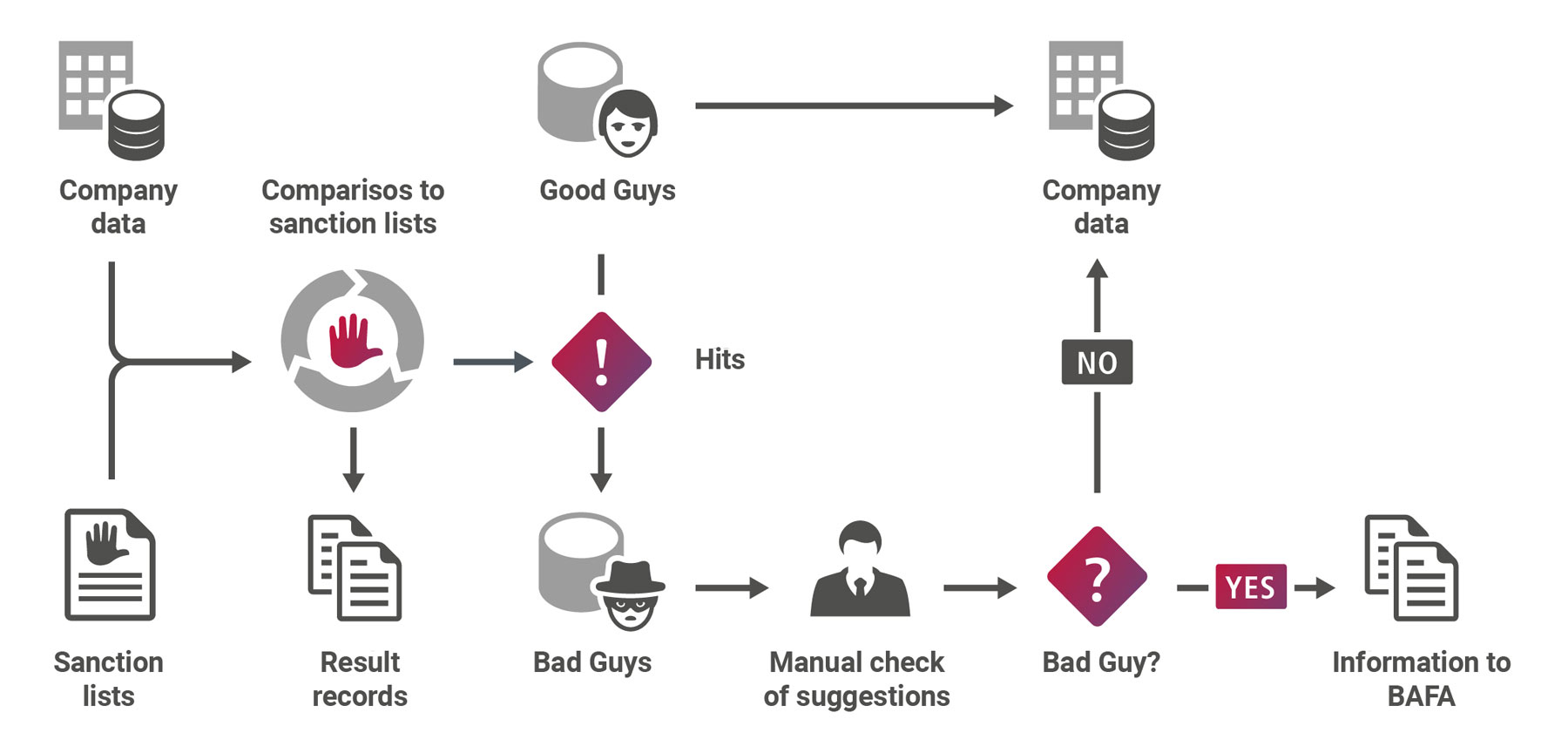Minimize risks - thanks to straightforward sanctions list checking
More security in business life by checking business partner data against blacklists or restricted party lists in large to very large databases of 100,000 data records or more. Because compliance includes not only adherence to laws or industry regulations, but also the prohibition of transactions with suspicious individuals and companies.

To avoid coming into conflict with legal requirements or guidelines, business transactions must be checked against national and international embargo lists. Non-compliance can result in severe fines and legal consequences. Difficult enough with a small customer and supplier base, a real challenge with millions of transactions. Manual matching against blacklists costs a lot of time and money. Poor data quality due to incorrect, inconsistent data further impedes smooth reconciliation. Only those who have installed an automated matching process can be sure.

Quick facts about the sanctions list check
- Fast & uncomplicated: Compare national and international embargo lists automatically.
- Perfect for large to very large data volumes from 100,000 data records.
- Protect against legal consequences and loss of revenue due to non-compliance requirements.
- Both in batch and real-time.
- Minimal resources and costs.
Sanctions list check process
Politically Exposed Persons (PEPs) & Sanction List Comparison
With embargo, Uniserv offers powerful tools for the automated comparison of all customer master data against individual sanctions lists or against a pool of several sanctions lists. A batch process checks your own inventory at regular intervals for the presence of currently risky data. For example, check your data in the CRM system for matches against sanctions lists to avoid further transactions with Politically Exposed Persons (PEPs) and other sanctioned individuals and companies. Matches can be found in individual addresses, especially the name, but also in other fields such as the purpose of a bank transfer. In bulk processing, the relevant fields are correlated and compared with the sanctions list data.
External datasets that have to be integrated into the existing system or are used to enrich own data should be checked with regard to legal requirements before migration into the dataset. When one or more companies merge, several heterogeneous data masters come together. To ensure that your company can continue to comply with the sanctions regulations, the third-party data stock must be checked.
In single record processing, you check in real time whether there are any hits in blacklists (e.g. Robinson list). This is particularly helpful in the call center, where fast action is required: each data record is checked when it is created. When the order is released, it is immediately apparent whether a business relationship may be entered into with the person. In the event of anomalies, measures can be taken immediately.
Your benefits
With the sanctions list check from Uniserv, you can conveniently load the current sanctions lists of the EU and the Federal Gazette directly, for example. Uniserv embargo has optimized algorithms which meet the specific requirements of blacklists. These include:
- few existing attributes per entry - often only the name of the customer exists
- natural and legal persons from all geographic regions of the world
- names in different scripts (Latin, Cyrillic, etc.)
You might also be interested in:





